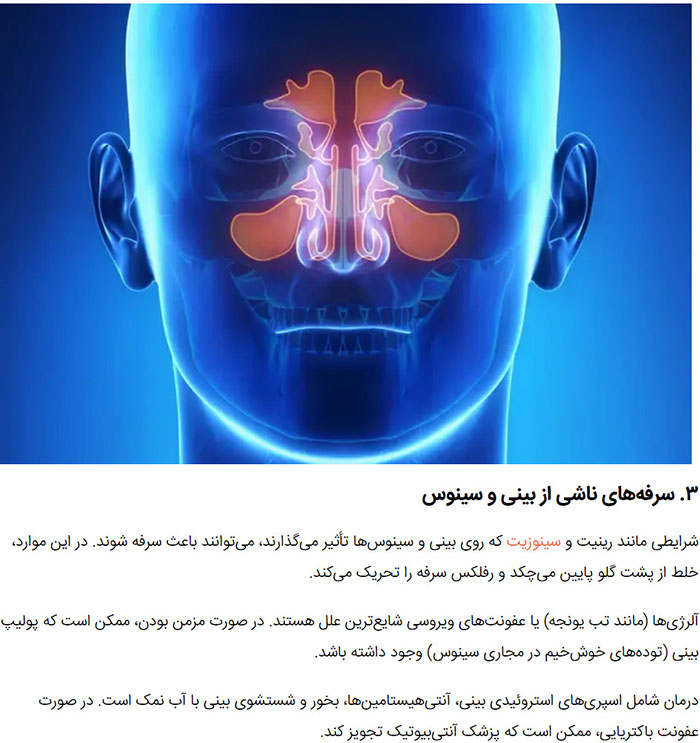Coughs that originate from the nose and sinuses are commonly linked to conditions such as rhinitis and sinusitis. When these areas become inflamed or congested, excess mucus forms and begins to drip down the back of the throat—a process known as postnasal drip. This dripping irritates the throat and activates the cough reflex, often resulting in a persistent or bothersome cough.
The most frequent triggers of postnasal drip include allergies, such as seasonal hay fever, and viral infections like the common cold. These conditions tend to cause temporary symptoms, but when the problem becomes chronic, other underlying issues may be involved. One possible cause is the presence of nasal polyps, which are noncancerous growths that can develop inside the sinus passages. Polyps can obstruct airflow and create ongoing congestion, increasing mucus production and contributing to long-term coughing.
Treatment depends on the underlying cause. Steroid nasal sprays are often used to reduce inflammation, while antihistamines can help control allergy-related symptoms. Inhalations and saline nasal irrigation can help clear mucus and soothe irritated tissues. When a bacterial infection is suspected, a doctor may prescribe antibiotics to address the infection and reduce associated coughing.

